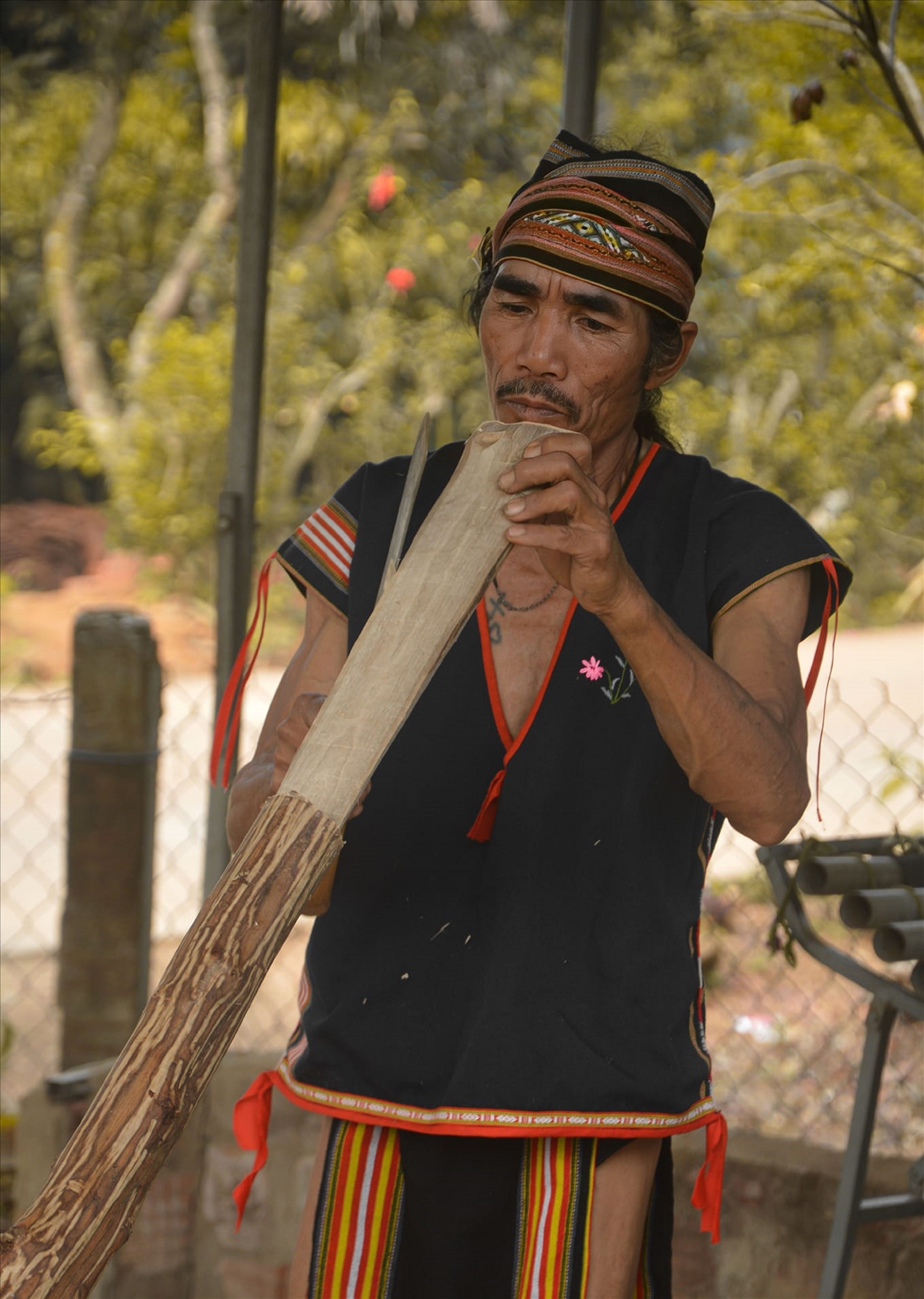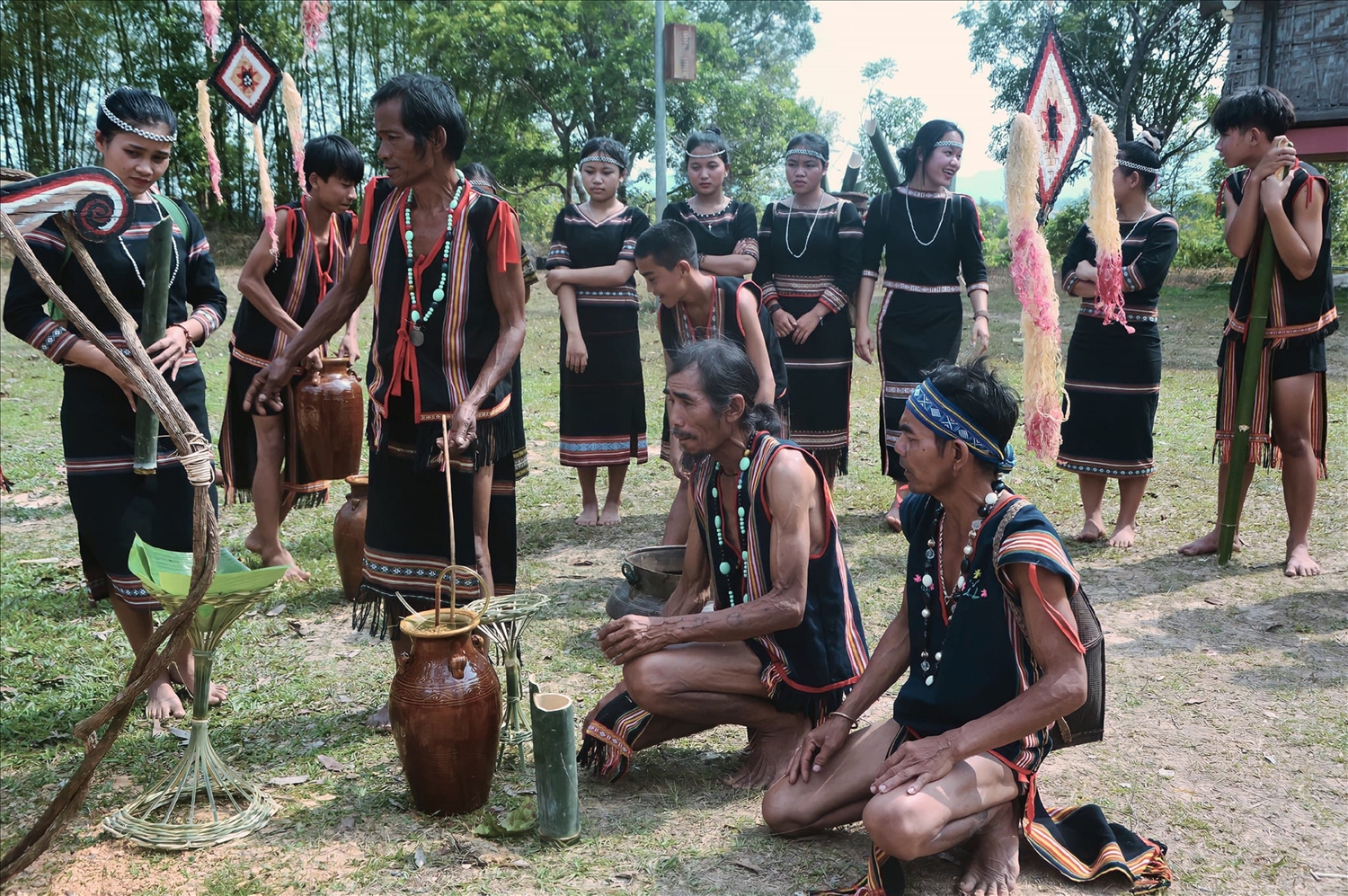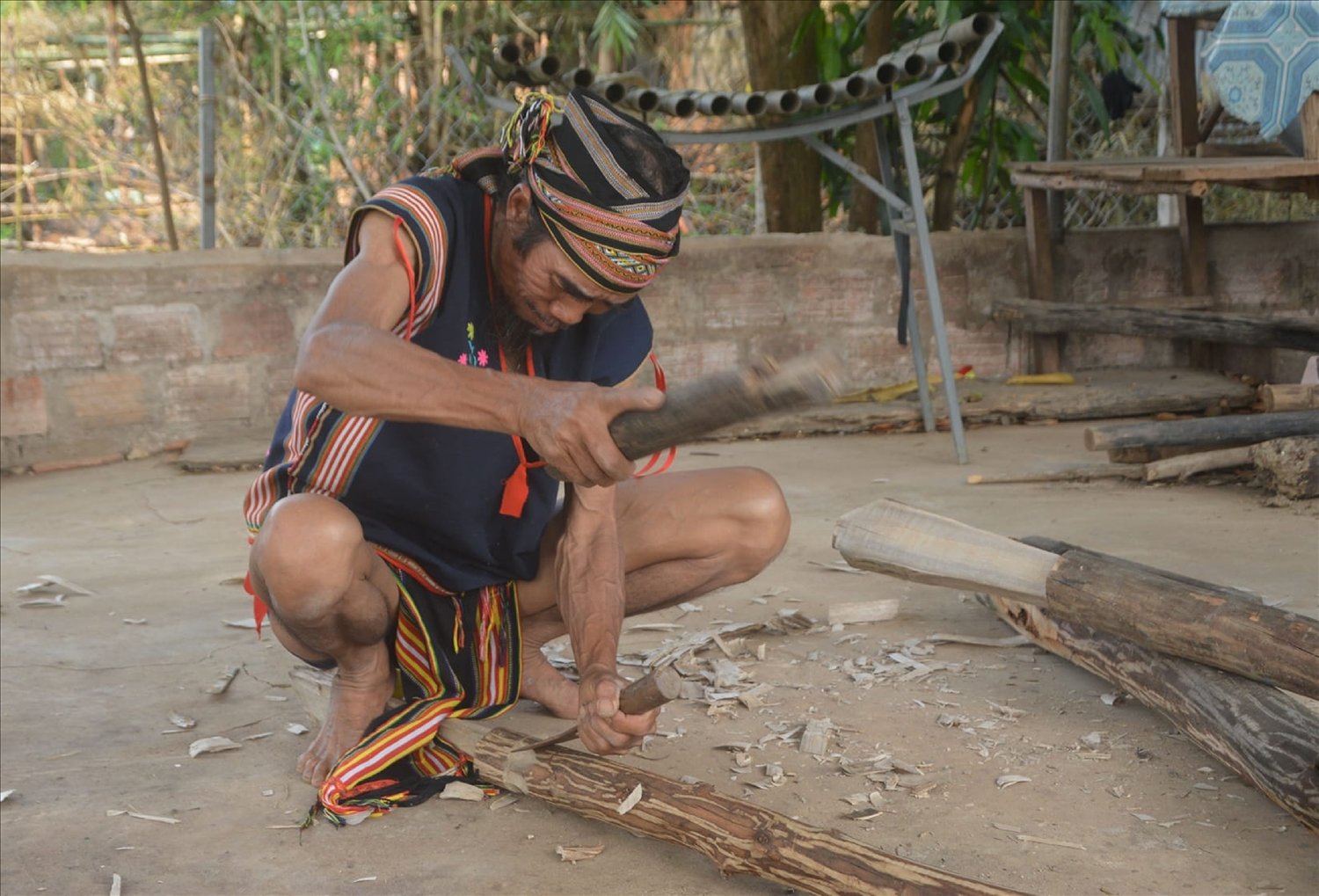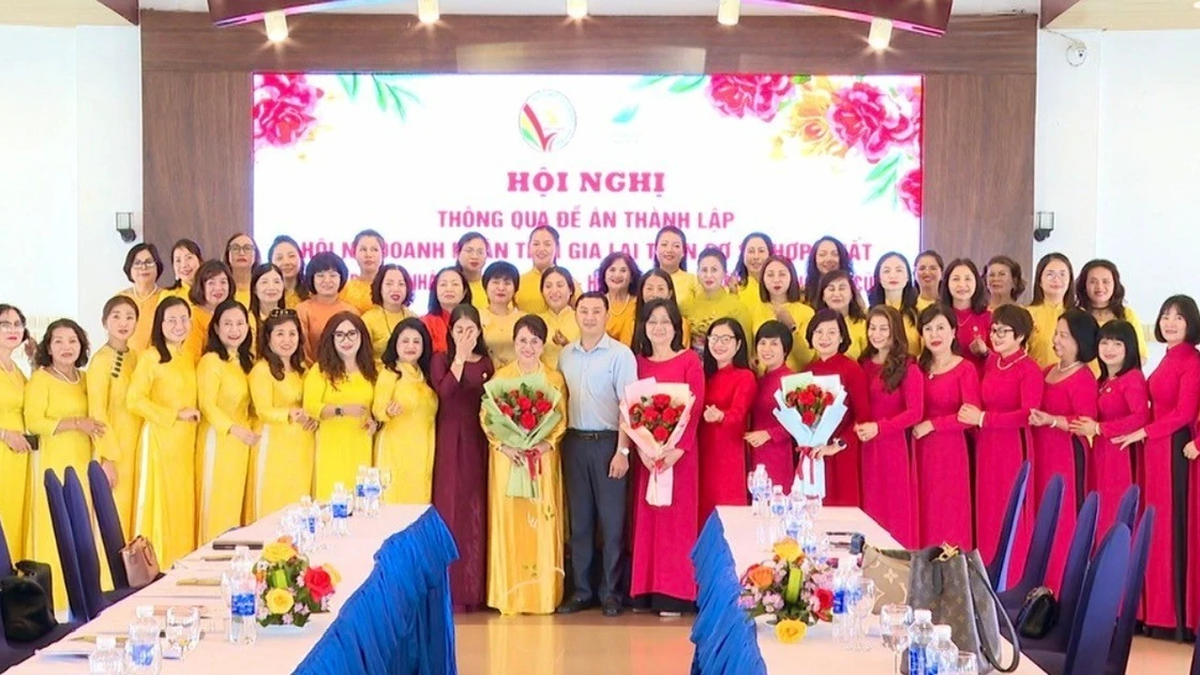
Gong sound in the ancient village
Letting his soul follow the gong sounds of the village children practicing the ancient gong, the village elder A Thuih (64 years old, Kon Trang Long Loi ancient village, Dak Ha commune, Dak Ha district, Kon Tum province) seemed to relive distant memories. The sounds of "Thap thong! Thap thong!" seemed to take him back to the vastness of the distance, where the first generations of the village trampled the forest, cut down trees to find new land to build houses by the stream.
Over the past 100 years, when the villagers came here, adopted Long Loi stream as their land and named it Kon Trang Long Loi (Kon Trang means cotton village, Long Loi means new, beautiful), from then on, the people of Ro Ngao village - a branch of the Ba Na ethnic group - have been attached to this land like flesh and blood. In the sound of gongs and drums, in the dances praying for the harvest, in the season of offering water drops, in the day of celebrating the new rice, in the ear blowing ceremony or the rice planting seasons... the sound of drums and gongs of our ancestors permeate the flesh and blood, in the souls, eating habits and living habits of the villagers.

A Thuih is the same! Since the age of 13, because of his passion for the sound of gongs, A Thuih asked his parents to let him follow the elders in the village to learn how to play gongs and carve statues. After more than 50 years of following, building and immersing himself in the treasure of his ancestors' heritage, artisan A Thuih has empathized and lived his life to the fullest with the sounds of ancient gongs. Now, his hair is dyed with clouds, but his hands still beat the gong rhythm correctly, his ears still appreciate the sound of gongs well and his love for gongs still flows in his veins.
In the middle of the vast wooden house filled with the breath of his ancestors, artisan A Thuih displays his “love”, then carefully cleans every dent on the gong’s surface to remove all dirt. He cleans the gongs, cherishes them like treasures, and takes care of them as if they were his own children.
He said, every gong has a soul. To control it, you have to understand it, you have to consider it as your friend. Only then can your soul and the gong's soul blend together, pushing out the soulful sounds that echo through the mountains and forests. For him, traditional gongs always have a special meaning, because they represent the unique culture of his people. Each traditional gong piece when played carries a separate message, such as the gong piece played in the New Rice Festival, buffalo stabbing, weddings will have a fast, urgent rhythm, expressing the joy and generosity of the people. As for the Grave-leaving Ceremony, Funeral... the sad gong rhythm seems to inform the villagers and surrounding villages about the passing of someone so that they can share their condolences.

In his thoughts, artisan A Thuih played a gong to celebrate the new rice crop, wishing for prosperity for the villagers, prosperity for the village and the country. His eyes shone with joy and pride, and many people were also happy.
Spread the echoes of a thousand years
To preserve the soul of gongs, artisan A Thuih established a gong team to perform throughout the province and beyond. He and the members of his gong team performed throughout the South and the North, reviving the soul of gongs in faraway places. On days when he was not performing, he returned to cherish the gongs and relive the glorious days of festival nights and taught gong playing and musical instruments to young people in the village. He said that learning to play gongs at any age is never too late, playing gongs is not difficult, the difficult thing is to have love and passion. Playing gongs means putting your soul into each beat of the gong, only then will the gong sound be good.

Villagers all know that many years ago, when he saw the ethnic culture gradually fading away, village elder A Thuih was determined to learn and record gong and t'rung songs... and thus he memorized dozens of ancient gong songs. Not only playing and tuning gongs, village elder A Thuih also knows how to play r'rung, tinning, carve wooden statues, sing folk songs... He also knows how to make gongs, stringed instruments, drums, and other musical instruments such as kơni, b'rung, k'long put... He is like a treasure trove of musical instruments of the Ro Ngao people in this ancient village.
For the village elder and excellent artisan A Thuih, those gong sets and ancient gong songs are more precious than anything else. They are not only his pride, but also the pride of the Ro Ngao people. He said that gongs only have meaning when they live in the community, in harmony with each other, resounding with sounds in the great forest. If you take them far away, tear them into pieces to display, then gongs are just soulless musical instruments.
Mrs. Y Nhuih (54 years old), the wife of village elder A Thuih, is also an excellent artist. She knows many xoang dances, folk songs, ding but, and lullabies passed down from the elderly. Also from the family tradition, all 6 children of the couple are proficient in traditional musical instruments as well as folk songs. She and her husband teach gong playing, musical instruments playing, and folk singing to the young generations of the Ro Ngao people. Up to now, the couple has taught how to use traditional musical instruments to 26 elderly people, 65 young people, and taught folk singing and ancient music to 50 young girls.
More happily, after being taught by Mr. A Thuih and his wife, the young people in the village were able to earn extra income by performing xoang dances and gongs for tourism . When Kon Trang Long Loi village was recognized as a community tourism village, the younger generations grew up knowing traditional values and knowing how to play gongs and dance gongs.
This is the key to developing Kon Trang Long Loi village into a community tourism village and bringing ethnic culture to economic development.

Regarding village elder A Thuih, Mr. Tran Anh Dung, Head of the Department of Culture and Information of Dak Ha district, said that artisan A Thuih is a pioneer in preserving and promoting the cultural identity of the Ro Ngao people in the area. He is not only good at playing gongs and preserving many gongs, but is also a very talented gong tuner. With many contributions to the work of preserving, maintaining and promoting the national cultural identity, the couple A Thuih - Y Nhuih were also honored to be recognized by the State as Meritorious Artisans since 2015.
Source


































































































Comment (0)